Warm and Satisfying! The Oden Culture of Japan and Famous Restaurants in Tokyo

Oden? Kanto-ni? Difference in Name and Taste between Tokyo and Osaka
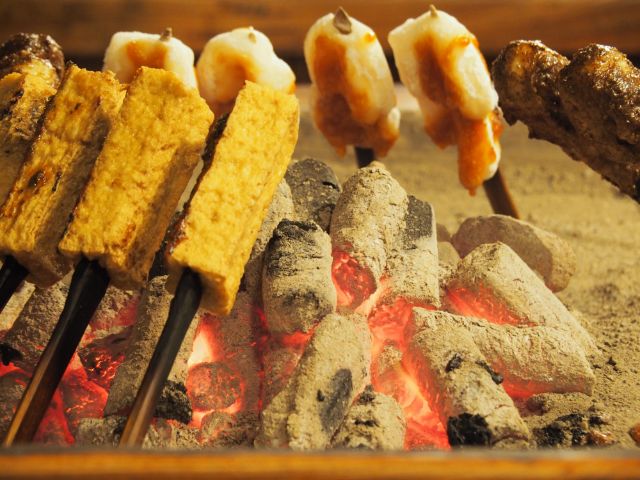
Top 3 Oden Ingredients Loved by Japanese People
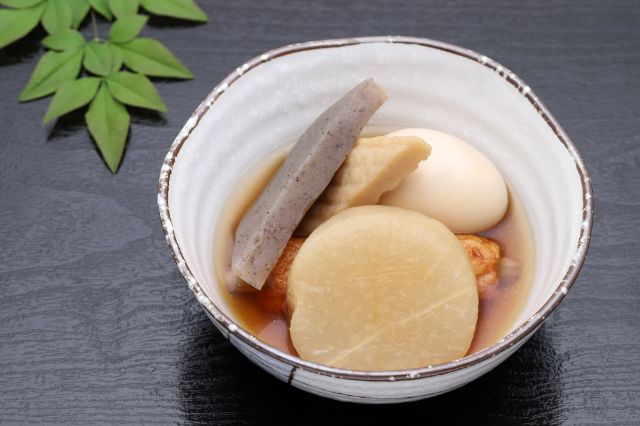
1. Beef tendon
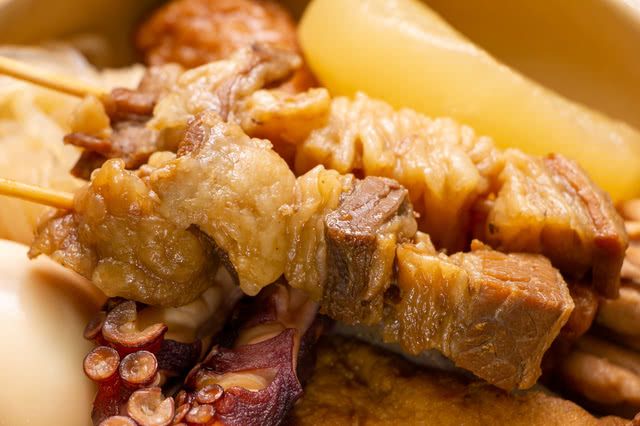
2. Hanpen
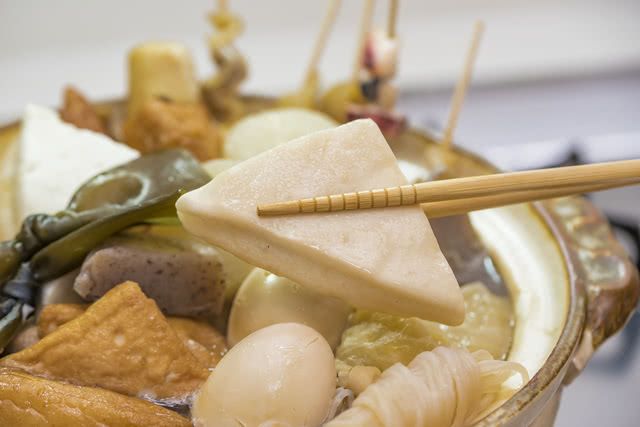
3. Ganmodoki
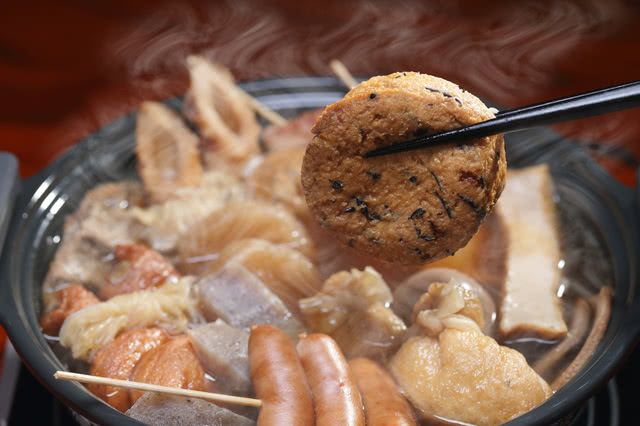
Have Some Delicious Oden in Tokyo!
Robata and Oden Kyosuke
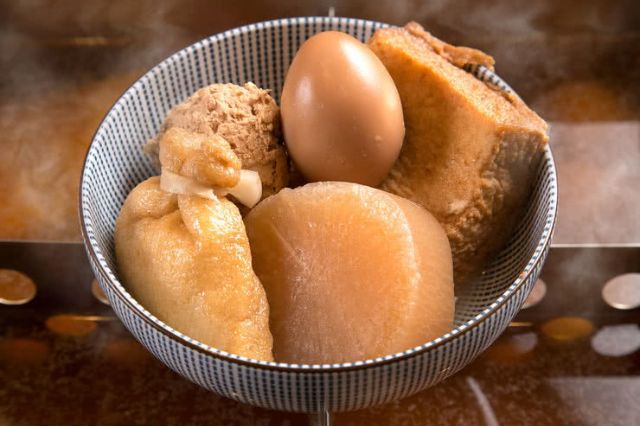
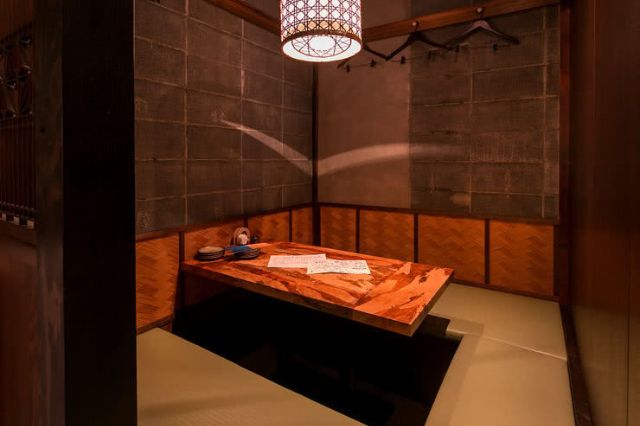
Other than oden, meat and tofu sukiyaki (another type of hot pot stew) is another signature dish. It takes 2 days of simmering, during which the beef's essence becomes one with the broth, whereas the smooth tofu is fully soaked. Together with seasoning, the resulting salty-sweet flavor is truly amazing.
Robata and Oden Kyosuke
Closed: Monday
Average price: 4,000 JPY
Address: B1F, Yamaguchi Bldg., 3-6-9, Shinjuku, Shinjuku-ku, Tokyo Map
More Details Reservation
Azabu Shu
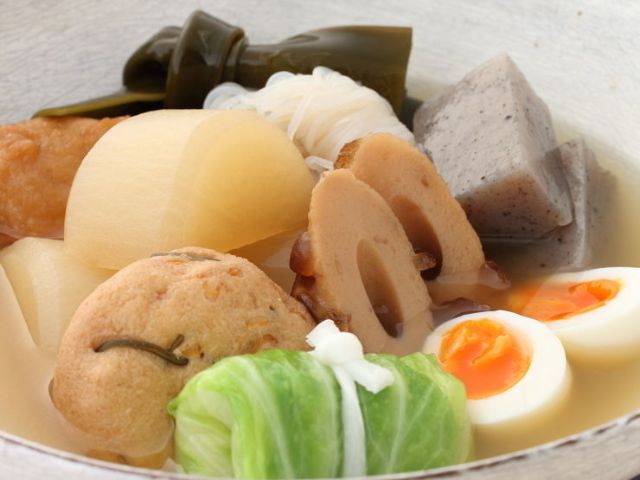
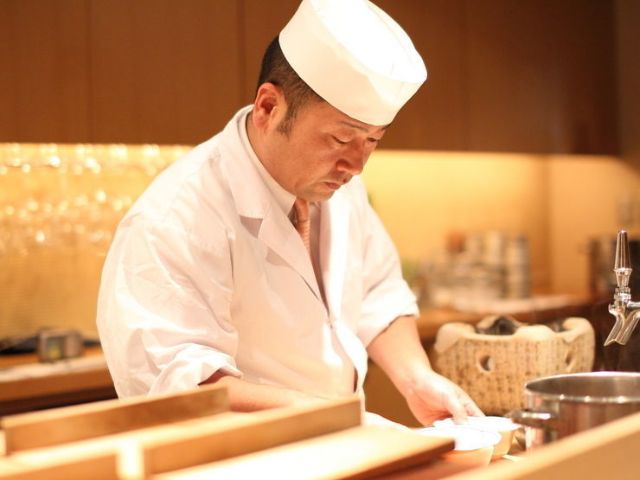
Azabu Shu
Average price: 8,000 JPY
Address: Takeda Bldg., 2-12-8, Azabu-juban, Minato-ku, Tokyo Map
More Details Reservation
Oden Kotaro
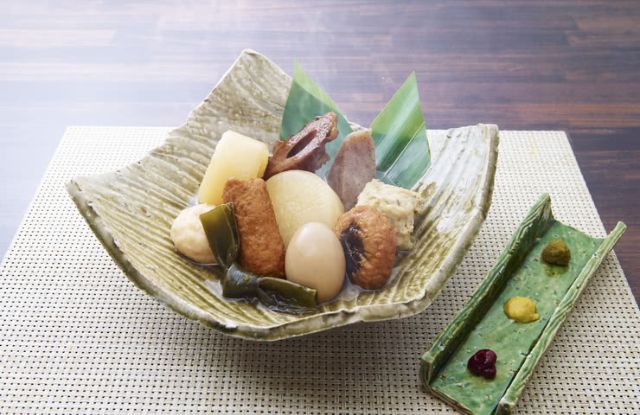
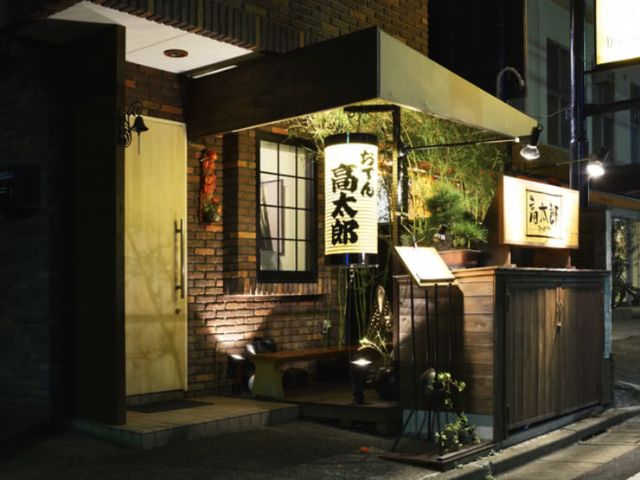
On the other hand, the grilled chicken balls are worth a try too. They are made with the famous Japanese green pheasant, and chicken cartilage is added in to make them more chewy. Be sure to dip them in egg yolk before eating - the rich taste combined with the slightly charred meat is purely satisfying!
Oden Kotaro
Closed: Tuesday
Average price: 4,000 JPY
Address: 5-37-10, Okusawa, Setagaya-ku, Tokyo Map
More Details
Nikomi Teranishi
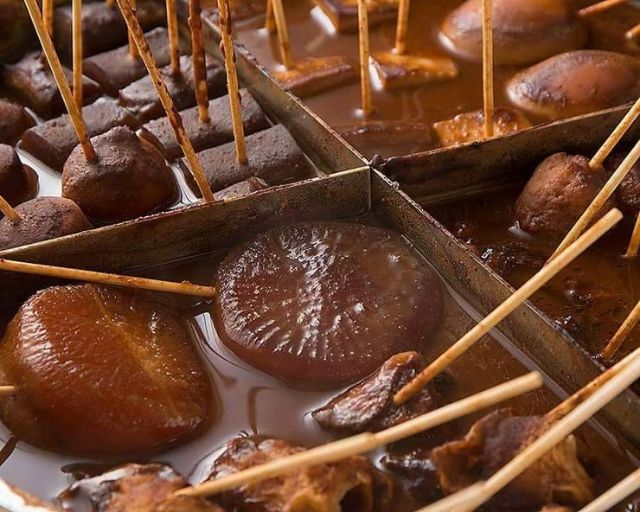
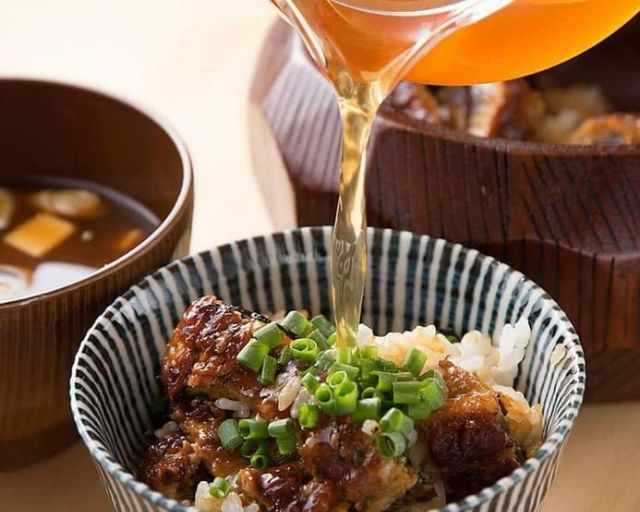
Nikomi Teranishi
Closed: Sunday, New Year's
Address: 1F, 2-14-4, Azabu-juban, Minato-ku, Tokyo
Hidariuma Densuke South Exit Branch
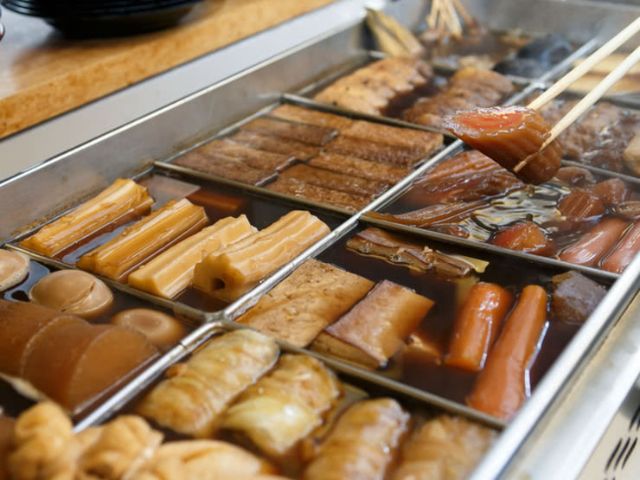
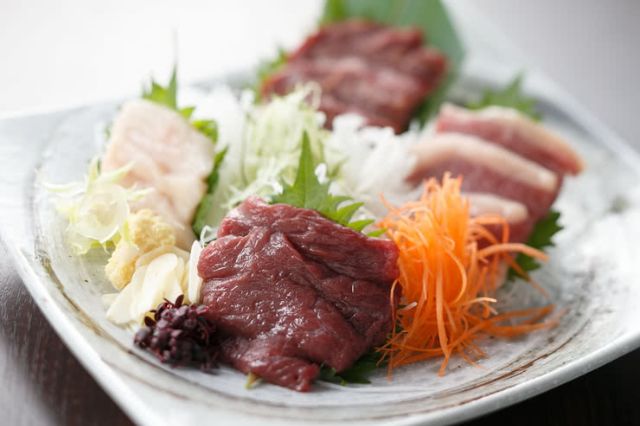
Hidariuma Densuke South Exit Branch
[Saturday, Sunday, National Holidays] 12:00 pm - 11:30 pm (L.O. 11:00 pm)
Closed: None
Average price: 2,300 JPY
Address: 1F, Taniya Bldg., 1-5-28, Nishiki-cho, Tachikawa-shi, Tokyo Map
More Details
Disclaimer: All information is accurate at time of publication.
Thank you for reading our article.
Our goal is to take your culinary journey to the next level by helping you find the best restaurant. With SAVOR JAPAN, you can search and make reservations for
the Japanese Cuisine restaurants found in and around Tokyo that fill your needs.
Discover more Japanese Cuisine restaurants by area
- Tokyo Area
- Near Tokyo
- Kyoto and Osaka Area
- Hokkaido Area
- Northern Honshu (Tohoku)
- Central Honshu (Chubu)
- Western Honshu (Chugoku)
- Shikoku
- Kyushu
- Okinawa and Ryukyu Islands
Discover more restaurants to eat Japanese Cuisine by area
Keywords
Related Articles
New Articles
Categories
Cuisine
- Bars (24)
-
Japanese Cuisine (692)
- Kaiseki (48)
- Nabe (20)
- Okonomiyaki (26)
- Shabu Shabu (38)
- Soba (19)
- Sushi (142)
- Tempura (19)
- Teppanyaki (48)
- Shojin Ryori (3)
- Tonkatsu (14)
- Kushiyaki (10)
- Yakitori (44)
- Sukiyaki (36)
- Japanese Cuisine (346)
- Oyster (2)
- Sashimi/ Seafood (28)
- Unagi (eel) (38)
- Motsu Nabe (offal hotpot) (10)
- Mizutaki (chicken hot pot) (4)
- Oden (8)
- Kaisendon (seafood bowl) (12)
- Udon (3)
- Taverns(Izakaya) Cuisine (127)
- Western Cuisine (43)
- Italian/French Cuisine (94)
- Yakiniku/Steak (229)
- Chinese Cuisine (26)
- Ramen (Noodles) Cuisine (24)
- Cafe/Sweets (64)
- Other Asian Cuisine (5)
- Global/International Cuisine (7)
- Alcohol (50)
- Other (11)
Area
- Shikoku (10)
- Kyoto and Osaka (348)
-
Tokyo (468)
- Tokyo (293)
- Ginza (45)
- Roppongi (20)
- Shibuya (28)
- Shinjuku (46)
- Asakusa (21)
- Ebisu (12)
- Tsukiji (11)
- Tokyo Landmarks (4)
- Ueno (23)
- Akihabara (9)
- Ikebukuro (12)
- Jiyugaoka, Denenchofu, Nakameguro (9)
- Shimokitazawa (4)
- Kichijoji (3)
- Tachikawa (1)
- Omotesando, Harajuku, Aoyama (17)
- Akabane (1)
- Kagurazaka (4)
- Akasaka (11)
- Odaiba (2)
- Tsukishima, Harumi, Toyosu (3)
- Near Tokyo (101)
- Okinawa and Ryukyu Islands (59)
- Hokkaido (125)
- Northern Honshu (Tohoku) (31)
- Central Honshu (Chubu) (143)
- Western Honshu (Chugoku) (34)
- Kyushu (94)
Archives
- February 2026(12)
- January 2026(11)
- December 2025(9)
- November 2025(4)
- October 2025(3)
- September 2025(6)
- August 2025(11)
- July 2025(19)
- June 2025(18)
- May 2025(34)
- April 2025(43)
- March 2025(30)
- February 2025(36)
- January 2025(26)
- December 2024(69)
- November 2024(31)
- October 2024(15)
- September 2024(39)
- August 2024(65)
- July 2024(31)
- June 2024(54)
- May 2024(61)
- April 2024(28)
- March 2024(31)
- February 2024(42)
- January 2024(32)
- December 2023(20)
- November 2023(5)
- October 2023(11)
- September 2023(7)
- August 2023(18)
- July 2023(8)
- June 2023(8)
- May 2023(18)
- April 2023(15)
- March 2023(1)
- January 2023(1)
- April 2022(2)
- March 2022(2)
- February 2022(1)
- January 2022(1)
- July 2021(1)
- March 2021(1)
- February 2021(1)
- December 2020(1)
- October 2020(1)
- September 2020(2)
- August 2020(10)
- July 2020(6)
- June 2020(9)
- May 2020(11)
- April 2020(8)
- March 2020(8)
- February 2020(13)
- January 2020(9)
- December 2019(24)
- November 2019(8)
- August 2019(14)
- July 2019(14)
- June 2019(18)
- May 2019(17)
- April 2019(16)
- March 2019(22)
- February 2019(22)
- January 2019(25)
- December 2018(34)
- November 2018(40)
- October 2018(32)
- September 2018(11)
- August 2018(8)
- July 2018(6)
- June 2018(9)
- May 2018(10)
- April 2018(21)
- March 2018(74)
- February 2018(39)
- January 2018(26)
- December 2017(60)
Keywords
- Omakase
- Accessible
- Affordable
- All-You-Can-Eat
- Amazing Scenery
- anime
- Art
- Autumn
- Awards
- Beer Gardens
- Breakfast
- Chef Recommendations
- Cherry Blossoms
- Chinese
- Close To Station
- Condiments
- Counter
- Coupon
- Crab
- Culture
- Dassai
- Dates
- delivery
- Early Summer
- Editor's Recommendation
- English Available
- Event
- Expo
- Fall Leaves
- Family-Friendly
- Famous Restaurant
- Famous Tourist Spot
- Fast Food
- festival
- fireworks
- Flower Farm
- Free Wi-Fi
- French
- Great Location
- Guide
- Hibachi
- hotpot
- How To
- hydrangea
- Hygiene
- Illumination
- Italian
- Izakaya
- Japanese
- Japanese alcohol
- jingisukan
- Kaiseki
- Kappo
- Kushiage
- Kushikatsu
- Kyoto
- Late-Night
- Lunch
- Manners
- matsusakagyu
- Michelin
- mizutaki
- Model Course
- monjayaki
- motsunabe
- Mt.Fuji
- Multilingual Menus
- Nabe
- Narita Airport
- New Year
- Ninja
- Noodle
- Oden
- Okonomiyaki
- omotenashi
- Onsen
- Osaka
- Osaka Station
- Photogenic Site
- pizza
- PR
- Private Room
- Ramen
- ranking
- Recipe
- Regional Cuisine
- Resort
- Rice Bowl Dish (Donburi)
- sacred places
- Sake
- Sakura
- Sashimi
- sea urchin
- Setouchi Area
- Shabu Shabu
- sightseeing
- Signature Dish
- Soba
- Solo Diners Welcomed
- Spicy Food
- Spring
- Steak
- Summer
- Sunflower
- Sushi
- takeout
- Teppanyaki
- Terrace Seating
- Tokyo
- Tokyo Experiences
- Tokyo Skytree
- Tokyo Tower
- unagi
- UNESCO
- Vegan
- Vegetarian
- Wagyu
- What Popular Gourmet Sites Recommend
- Whisky
- Wine Bar
- Winter
- Wisteria
- Workshop
- World Heritage Site
- World Writers
- Yakiniku
- Yoshoku
- Yuba
- Zen
Discover Restaurants By Area
-

Tokyo Area
Japan's largest city, Tokyo, is the center of culinary culture in Japan. Countless Tokyo restaurants serve every kind of food imaginable and the Toyosu fish market keeps restaurants stocked with the nation's finest fish.
-

Near Tokyo
Coastal areas, mountains and valleys surrounding Tokyo are bursting with tourist destinations, such as hot springs and ski slopes, where many unique foods are only available locally.
-

Kyoto and Osaka Area
The cities of Kyoto and Osaka, together with their surrounding areas, have greatly influenced Japan's culinary culture since the 7th Century. The region is renowned for its entertainment, Kobe beef, and wide-ranging traditional dishes.
-

Hokkaido Area
The island of Hokkaido is home to wide-ranging produce of the finest quality, such as rice, meat, vegetables, fish and fruit. Popular dishes from Hokkaido include robatayaki (food slowly roasted on skewers) and Sapporo miso ramen.
-

Northern Honshu (Tohoku)
The northern end of Japan's main island, Honshu, is renowned for its seasonal fruit and vegetables, nation-leading harvest of fish (especially tuna from Ohma), and delicious beef from Yonezawa, Sendai and Yamagata.
-

Central Honshu (Chubu)
Chubu is in the center of Japan's main island, Honshu, and its culinary culture reflects its position between Japan's western and eastern halves. Delicious Hida beef, world-famous Mount Fuji and many acclaimed sake breweries are in Chubu.
-

Western Honshu (Chugoku)
Chugoku, on the southwest of Japan's main island, is rich with diverse produce. Many of its products are praised as Japan's best, including Matsuba crabs from Tottori and oysters from Hiroshima. Its pears and muscats are also top grade.
-

Shikoku
The mild climate of Shikoku is ideal for growing citrus fruit such as sudachi. Shikoku is also famous for Sanuki udon noodles, huge yields of tiger prawn from Ehime Prefecture and the best torafugu (tiger globefish) in the country.
-

Kyushu
Western culture was first introduced to Japan through Kyushu, Japan's third largest island, where the influence of Portuguese and other western cuisine influenced the creation of a colorful culinary tradition.
-

Okinawa and Ryukyu Islands
Okinawa, Japan’s southernmost prefecture, is a treasure trove of distinctive dishes and drinks that have become popular throughout Japan, including Okinawa soba, unique sushi toppings and Awamori distilled liquor.
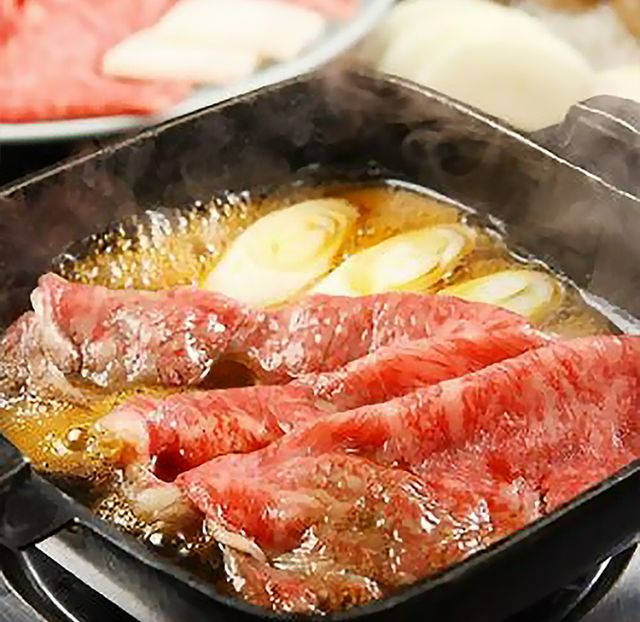
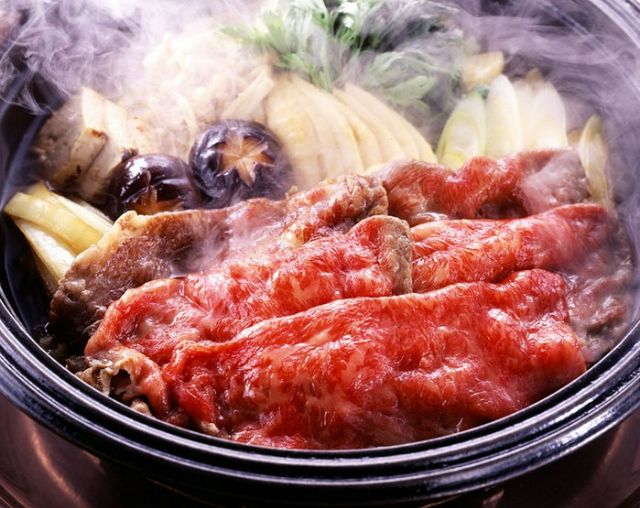
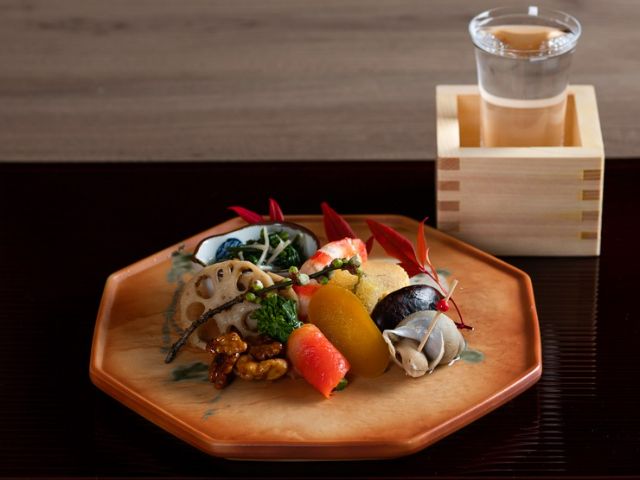
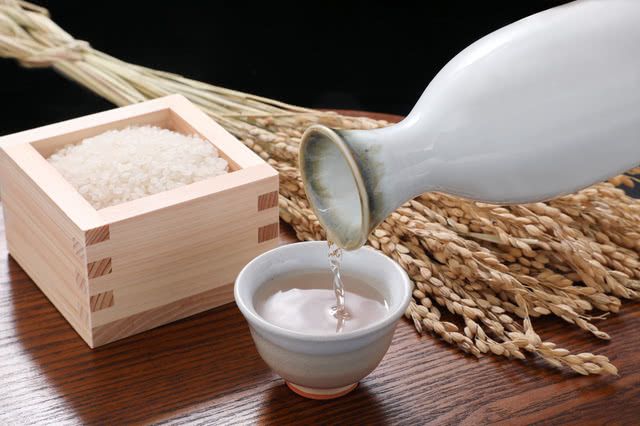
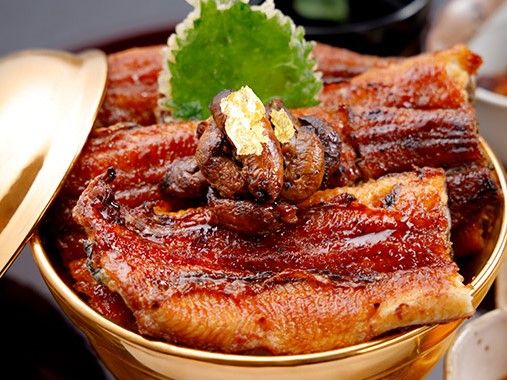
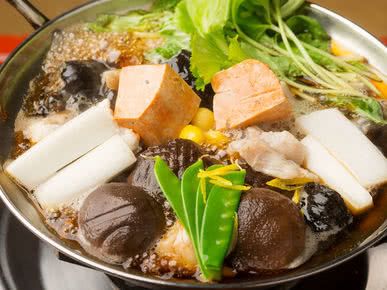
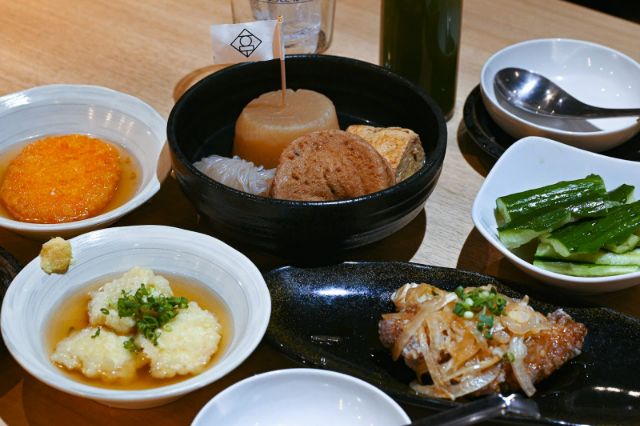
![[Hokkaido] Top 5 Popular Restaurants for Sapporo Sightseeing! Featuring Editor's Recommended Picks](https://rimage.savorjapan.com/svj/image/discover_oishii_japan/6979/article_head_150x105z.jpg?t=1772017426)
![[Osaka] Top 5 Popular Restaurants! Featuring Editor's Recommended Restaurants](https://rimage.savorjapan.com/svj/image/discover_oishii_japan/6978/article_head_150x105z.jpg?t=1772016962)